Do you approach research as a chore or as a scavenger hunt? I easily get caught up in the awe of research. If someone had told my teenage self that I’d grow up to be a research addict, I would have spewed Orange Crush out my nose. Fast forward a decade or two to my early interest in nonfiction for the age-challenged and I would have hissed at the idea of doing the same level of research for a 32-page picture book as I would for a scholarly adult book. Yep, it’s true.
Next week, I’ll be pitching in at an Austin SCBWI workshop dedicated to research techniques for nonfiction and fiction writers. When it comes to research, whether you write for adults or children, nonfiction or fiction, the tools and processes are the same. I wish I’d had this type of workshop instruction long ago, before I spent several years chasing shiny (barely related) factoids down the literary equivalent of rabbit holes; before flailing around in the wrong dark places to find the information I really needed. I’ve learned a lot through the school of hard knocks, but I can’t wait to soak in the wisdoms, tips, and shortcuts offered by our workshop faculty: award winning nonfiction author Cynthia Levinson, award winning novelist Greg Leitich Smith, librarian-extraordinaire Jeanette Larson, and author and Calkins Creek Books editor Carolyn Yoder. I have a feeling my research will become more efficient. There are a few spots left, so click here for more information about the Sept. 13, 2014 event.
Since I write primarily about dead people, ahem, I mean historical subjects, my research destinations might look a bit different than someone learning about dinosaurs, or habits of today’s teens, or which baseball player did what and when, or how Julia Child’s kitchen was outfitted. But, we’re all on the search for information that aids us in developing our characters, settings, and plots.
Personally, any success I’ve had with research, I owe to:
The staff of my local library, first. Who could love books and the research trail more? When I’m stuck on where to search for obscure information, they’re always eager to jump onto the trail with me. They know just how to get a copy of that rare book or article, often through inter-library loan.
Online Databases, historic photos, EBay
Yes, I said EBay. I have Google alerts set up for each of my subjects. Every time my designated keywords pop up on the web, I am notified. EBay sellers occasionally list souvenirs, books, pamphlets, playbills, photos, pinbacks, etc, related to my subjects. I’ve become somewhat of a collector.
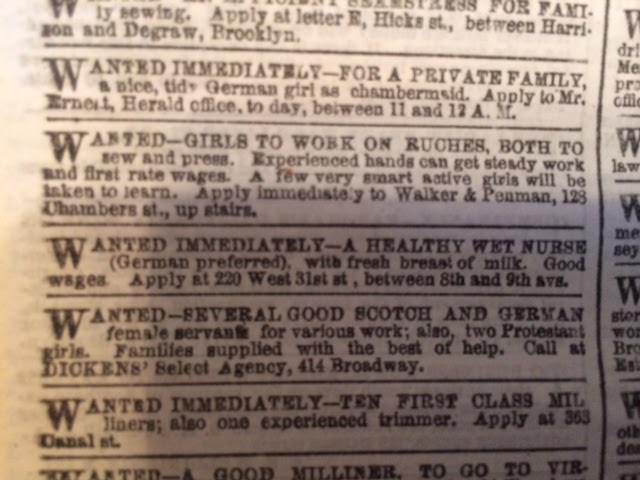
Hands-on
I searched high and low for a rope of this material and circumference. I found it on EBay. It’s related to a manuscript that’s under consideration right now. I can’t tell you what the subject is, yet, but being able to handle this rope and visualize it made a big difference in the storytelling.
Newspapers
I fell in love with archived newspapers, but learned that yester-year’s reporters weren’t always the most reliable sources. I want to believe that there’s an overall higher
standard of accuracy today, but those kinds of assumptions can be dangerous to
researchers. When the spring 2016 release date for my book, En Garde! Abraham Lincoln’s Dueling Words
gets closer, I’ll share some of the unique challenges I came across when dealing
with politically-slanted newspapers from the 19th century.
One of the advantages to perusing newspapers from my
subjects’ times is getting a sense of the era. Styles, prices, labor,
entertainment, culture, it’s all right there in smudgy print. Even prices for slaves, which makes me cringe to read. (by the way, Blogger freezes when I try to post pics of ads for women’s clothing. Bah!)
Oh, and I always stumble upon unexpected historical
finds, too.
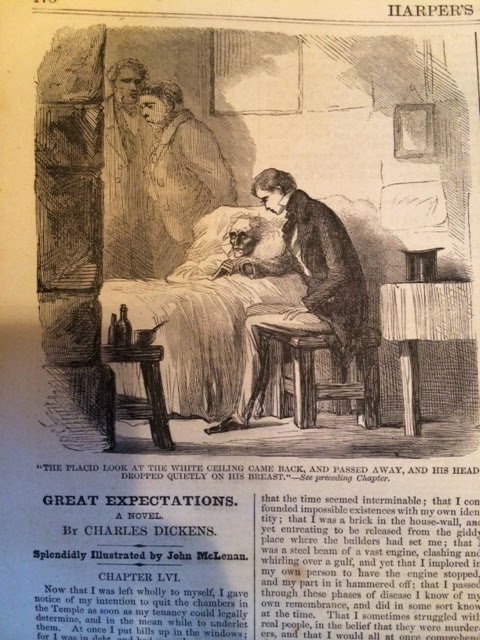
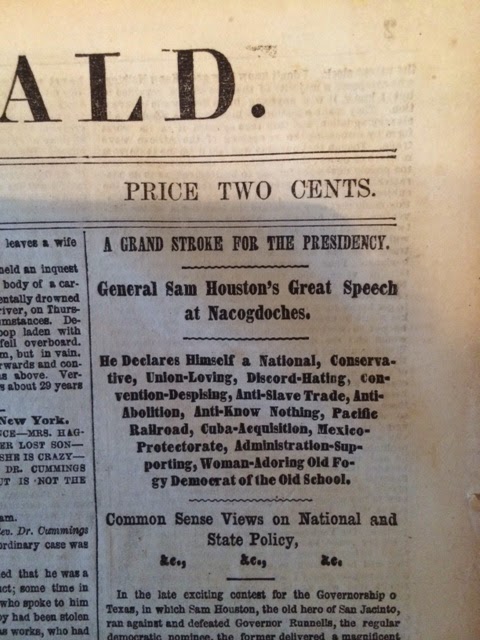
Like Charles’ Dickens’ serialized story, GREAT EXPECTATIONS. And Sam Houston’s famous speech at Nacogdoches (especially relevant to my Texas friends.)
And there’s always humor to be found, too. A great deal more humor than today, in fact. Some of it is too edgy to post here.

Interviews
Every interviewer is nervous. Really nervous! But I’ve found that most experts and people with firsthand experience are flattered to be consulted. They love that someone thinks their topic is worthy of a children’s book. Usually, they are very generous with information.
Microfilm
Old fashioned microfilm can be a treasure, too. I squinted my
way to a hard-earned headache at the Shelbyville, TN Library as part of my
research for Step Right Up: The Story of
Beautiful Jim Key (Lee and Low, fall 2015). As more and more of these films are digitized, use of the
machines is becoming a lost art. Before a DVD version of a collection was
available, I purchased my own microfilm copy, then
struggled, along with a library assistant in a neighboring town, to figure
out their dusty machine.
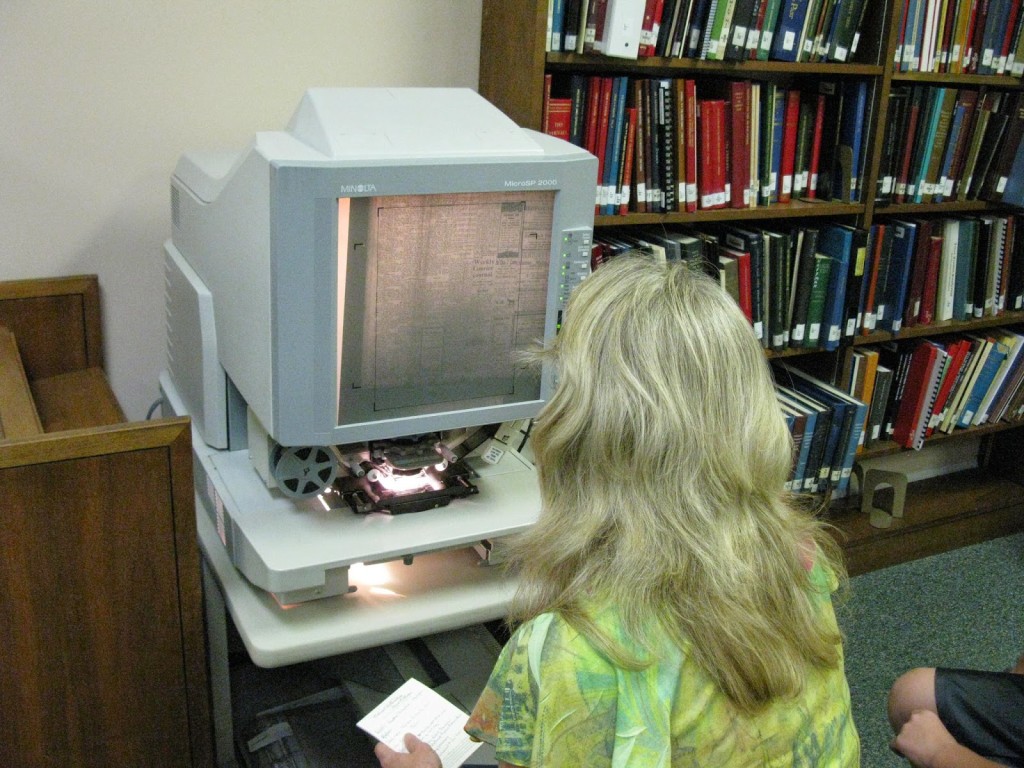
I’ve donned white gloves to peruse fragile archive documents, including yellowed and musty scrapbooks from long ago eras. Friends, there is nothing quite like the smell of history and the nostalgia of touching the past. For my research at the Tennessee State Archives, I was not allowed to take anything into the room except a few sheets of paper and a pencil, so I have no photos to wax sentimental over.
Research for my current project took me to a Presidential Library. They have thousands of pages of documents related to my subject, which has nothing to do with the president. They encourage researchers to take photos of documents that they want copies of, so a camera or smart phone is allowed into the room. Now I just need to figure out how to catalog my 472 photos. Don’t think they’re willy-nilly about giving access to documents. I had to give a copy of my driver’s license, went through a one-on-one orientation with an incredibly helpful archivist, and followed strict protocol when ordering material. Every desk space in the room is monitored by the watchful eyes and monitors of staff who are passionate about preserving documents. It was an amazing experience.
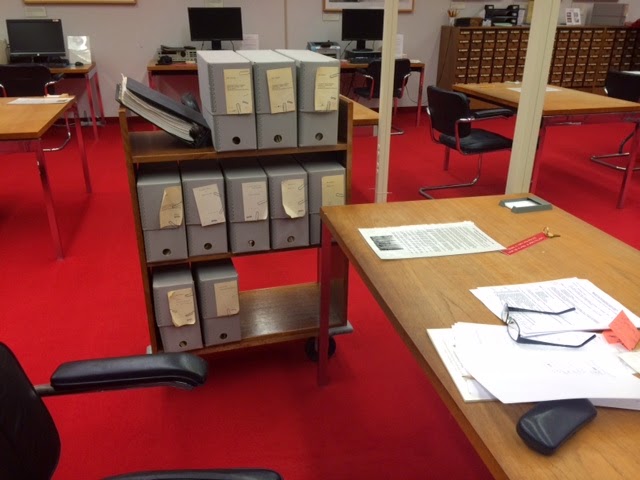
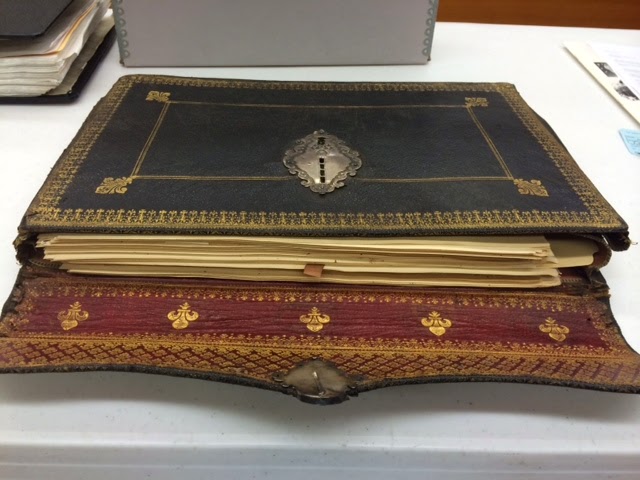
Left: Scrapbook from 1949 Europe.
Right: working my way through boxes of historical material.
In Person
Of course, there’s nothing better than visiting the scene of your historical research to get a feel for the place, but I know it’s not always possible to make such trips. I’ve been known to ask friends to take photos for me if I know they’re visiting an area relevant to a writing project.
To accommodate my needed research trip to Tennessee, where the story of Dr. William Key and Beautiful Jim Key began and ended, we planned a family vacation around it. I’m not ashamed to admit that I was more than a little teary-eyed when I visited the graves of both Doc and Jim. Yeah, it’s that personal to me.
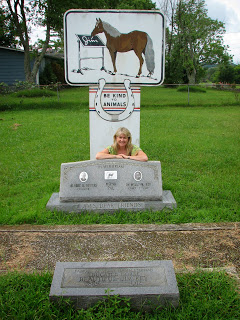
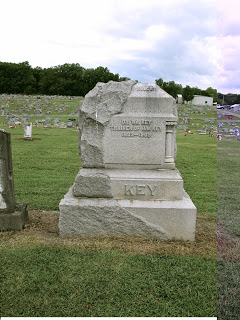
Yes, research is a scavenger hunt. Whether you write about dead guys or novels about contemporary life, research can be exhilirating, emotional, thrilling, even disappointing at times. It is always enlightening. Even when you’re led down literary rabbit holes, they are full of wonder.


Great post, Donna! I'm also looking forward to the workshop, because I've been down some of those rabbit holes, too. Thanks for sharing!
Great post. I especially loved picturing you handling that rope to give you a genuine feel for it. Thank you!
Alisha, I look forward to seeing you there.
Audrey, thanks reading and commenting. I look forward to seeing you next week at the PB workshop.
Great post, Donna. I love the onion quote!
Great post! I do a lot of research for my novels too. Not as much as for nonfiction books, but I've had to go to first-hand sources like interviews to make sure the action in my novels rings true.
I'm looking forward to your books. They sound fantastic.
Thank you, Penny.I've come across some hilarious editorials and snippets in old newspapers.
F.A., I know you can relate when it comes to researching for novels, too.